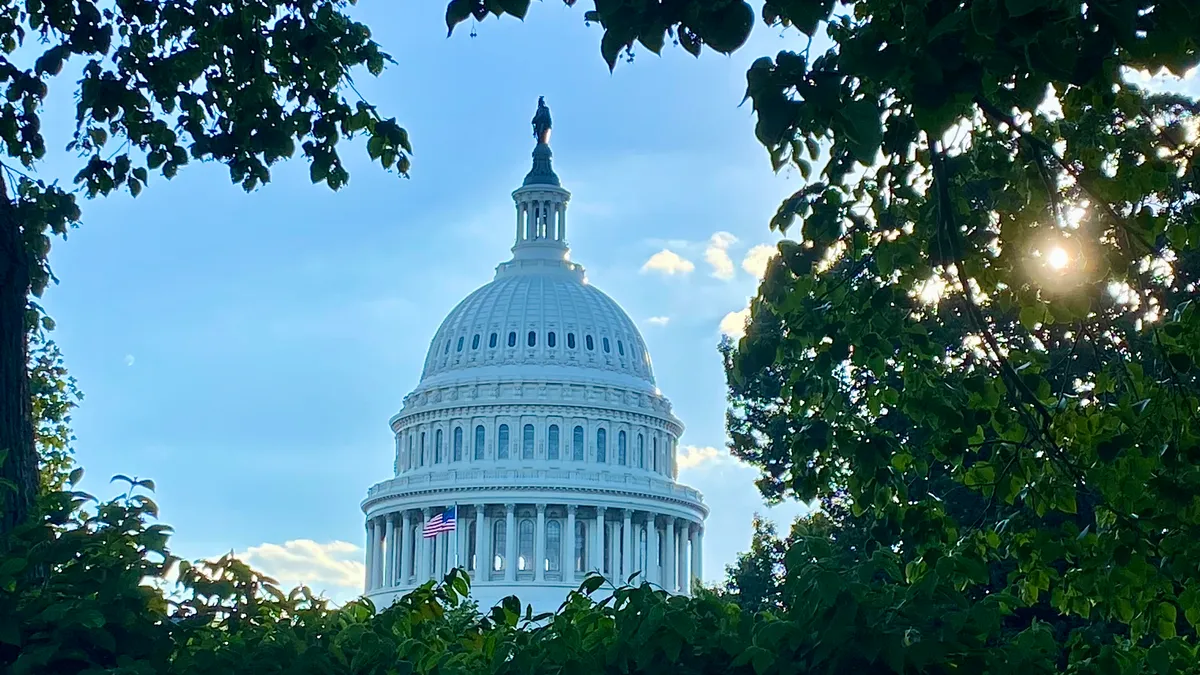Dive Brief:
- In a wide-ranging hearing in front of the House Early Childhood, Elementary and Secondary Education Subcommittee Tuesday, panelists discussed COVID-19 academic and social-emotional recovery hardships, as well as solutions educators are using to help students get back on track academically, socially and emotionally,
- Nebraska Education Commissioner Matthew Blomstedt, for example, addressed the increase in chronic absenteeism and the widened math achievement gap in his state. He also spoke of new partnerships with nonprofits and state agencies to scale and regionalize mental health supports accessible to schools, and boosting the teacher pipeline by consulting with a teacher advisory panel on ways to increase and diversify the education workforce.
- While several lawmakers asked about school closure decisions early in the pandemic, most of the conversation centered on the professional and financial efforts being made to overcome setbacks and encourage schools to set high expectations for students.
Dive Insight:
Tennessee Commissioner of Education Penny Schwinn shared efforts in her state to analyze data to determine priority areas, and to target resources toward accelerating student learning. She also emphasized the importance of transparency, saying a state website tracks absenteeism and shows district family engagement plans. Additionally, the state publicly shares local reimbursement information for federal emergency funding activity, Schwinn said.
"I think what we're seeing is that when we challenge our students to be excellent, when we give them the supports they need to do so … we are seeing our students rise to those expectations," Schwinn said. "And we're seeing the people who deeply care about them in our school systems also do whatever it takes to ensure our children can thrive."
Aaliyah Samuel, president and CEO of the Collaborative for Academic, Social, and Emotional Learning, shared the need for schools to recognize that all learning is social-emotional and said efforts to support students' well-being are being threatened.
"We can't let political posturing silence the voices of parents and educators who recognize the benefits of social-emotional learning for their children," Samuel said. "Social and emotional learning is the process of developing valuable life skills including understanding and managing emotions, developing empathy, building relationships and making responsible decisions."
FutureEd, a think tank at Georgetown University's McCourt School of Public Policy, examined federal emergency aid use at the district level and found nearly the same percentage of districts in red and blue states earmarked American Rescue Plan funds for social-emotional learning, Phyllis Jordan, FutureEd associate director, told the lawmakers.
Rep. Jahana Hayes, D-Conn., a former National Teacher of the Year, said the pandemic was something no one could have prepared for. "We all care about their [students'] well-being. We all want them to have an opportunity for success, and we all should be invested in solutions to make sure that we close these gaps," Hayes said.
The hearing on solutions and best practices comes just a week after Republicans on the House Education and Labor Committee and the House Oversight and Reform Committee announced an investigation into the reported use of federal pandemic relief funding for activities related to what they called "progressive left causes," such as critical race theory curriculum, equity and inclusion.
Ranking member Virginia Foxx, R-N.C., said while she has concerns about social-emotional instruction, schools should have a role in addressing student mental health struggles.
"Sometimes addressing those issues is necessary to help a student learn," Foxx said. "At the same time, I know parents are concerned schools are becoming so focused on the students' mental health and social-emotional learning, the schools are losing sight of their core mission."














